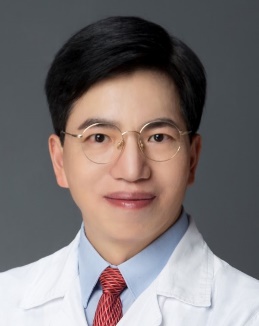
Dr. William C. Cho
Ph. D., RCMP, FHKIMLS, FHKSMDS, Chartered Scientist (UK), FIBMS (UK)Queen Elizabeth Hospital, Hong Kong, China
Speech Title: The Road Ahead: Exciting Prospects in Precision Oncology
Abstract: Precision oncology has revolutionized cancer treatment by tailoring therapies to individual patients based on their unique molecular profiles. This presentation explores the promising prospects in precision oncology, with a particular focus on liquid biopsy and hallmarks of cancer.
Liquid biopsy has emerged as a non-invasive method for monitoring tumor dynamics and detecting genetic alterations. It enables the analysis of circulating tumor DNA, RNA, and proteins, providing real-time information on tumor evolution, treatment response, and the emergence of resistance. The potential of liquid biopsy extends to early cancer detection, treatment monitoring, and personalized therapy selection. Furthermore, the diagnostic and therapeutic potential of extracellular vesicles, which serve as carriers of nucleic acids, proteins, and metabolites reflecting the molecular characteristics of tumors, holds significant promise for precision oncology.
Precision oncology capitalizes on the significant targets presented by the hallmarks of cancer, which include sustained proliferation, evasion of growth suppressors, resistance to cell death, and attainment of replicative immortality. Therapeutic interventions aimed at disrupting these hallmarks have demonstrated promising outcomes, prompting ongoing research to identify novel targets and develop effective treatments. Within this evolving landscape, the microbiome has emerged as a novel dimension within the hallmarks of cancer. Comprising trillions of microorganisms inhabiting the human body, the microbiome exerts influence over diverse aspects of cancer development and contributes to the discovery of new therapeutic targets.
In conclusion, precision oncology holds immense promise in transforming cancer care. Advances in liquid biopsy, exploration of the hallmarks of cancer, and targeting specific mutations pave the way for more effective and personalized cancer treatments.
Biography: Dr William Cho primarily focused on cancer studies with the aim of identifying biomarkers for cancer diagnosis, treatment prediction, and prognosis. As a seasoned researcher, I have employed various disciplines such as molecular biology, proteomics, genomics, immunology, and bioinformatics to conduct cancer research. I am proud to have contributed over 600 peer-reviewed papers to reputable journals including Lancet, Lancet Oncology, Annals of Oncology, Advanced Science, Nature Communications, Cancer Communications, PNAS, Science Advances, Journal of the National Cancer Institute, Journal of Extracellular Vesicles, Clinical Cancer Research, Molecular Cancer, and Theranostics, among others. These publications cover a wide range of topics including cancer biomarkers, non-coding RNAs, extracellular vesicles, drug repurposing and Chinese medicine. Additionally, I am an editor of over two dozen books, including "MicroRNAs in Cancer Translational Research", "An Omics Perspective on Cancer Research", "Supportive Cancer Care with Chinese Medicine", "Drug Repurposing in Cancer Therapy: Approaches and Applications", and “Resistance to Anti-CD20 Antibodies and Approaches for Their Reversal” to name a few.
Dr Cho published papers have garnered more than 25,000 citations and Dr Cho is being listed in the top 2% most influential scientists in the world.
